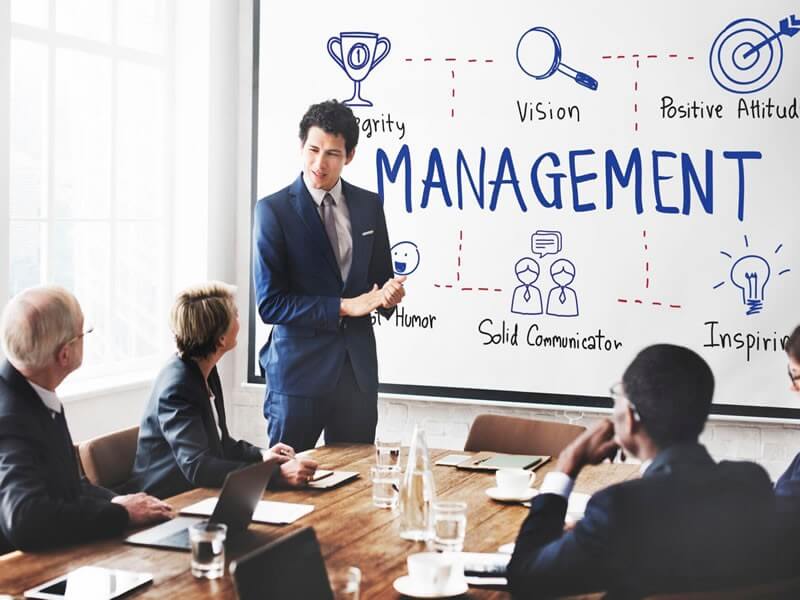In the ever-evolving business landscape, senior management professionals stand at the forefront, entrusted with steering organizations through challenges and uncertainties. Navigating the complex terrain of modern commerce requires a distinct set of capabilities that transcend traditional leadership skills. As the business landscape becomes increasingly dynamic, senior executives must hone their abilities to weather challenges and lead with resilience and innovation. This blog post will explore strategies and insights on how senior management professionals can cultivate and enhance their capabilities to effectively overcome the diverse business challenges they encounter in today’s fast-paced and competitive environment.
The IIM Calcutta executive program is a transformative avenue for senior management professionals aiming to fortify their capabilities to surmount contemporary business challenges. Rooted in the prestigious Indian Institute of Management’s legacy, this program strategically combines academic rigor with real-world relevance. Participants gain invaluable insights into cutting-edge business strategies, leadership methodologies, and disruptive innovations. Crafted by industry experts and seasoned faculty, the curriculum imparts practical knowledge, fostering adept decision-making and problem-solving skills. Engaging in case studies, peer interactions, and immersive learning experiences, participants deepen their understanding of business dynamics and cultivate a resilient and innovative mindset.
Senior management professionals play a critical role in steering organizations through the complexities of the business landscape. To overcome the ever-evolving challenges in today’s dynamic environment, senior leaders need to continually develop and enhance their capabilities. This involves a combination of skills, knowledge, and attitudesto empower them to make informed decisions, lead their teams effectively, and navigate the complexities of the business world.
One key aspect of developing capabilities is fostering a continuous learning mindset. Senior management professionals must recognize that the business landscape is constantly changing, driven by technological advancements, shifting market dynamics, and global economic trends. Embracing a commitment to lifelong learning enables leaders to stay ahead of the curve and also adapt to emerging challenges. This can involve formal education, such as executive courses or advanced degrees, as well as informal learning through reading, networking, and staying abreast of industry trends.
Effective communication skills are paramount for senior management professionals. The ability to articulate a compelling vision, align team members with organizational goals, and communicate effectively with various stakeholders is essential. Leaders should invest in honing their communication skills through training programs, public speaking engagements, and seeking feedback to continuously improve their ability to efficiently convey complex ideas in a clear and concise manner.
Strategic thinking is another crucial capability for senior management professionals. This involves the ability to analyze data, assess market trends, and anticipate future challenges and opportunities. Leaders must be adept at setting long-term goals, formulating effective strategies, and making decisions that align with the organization’s vision. Developing strategic thinking skills can be achieved through engaging in scenario planning, participating in strategic workshops, and seeking mentorship from experienced leaders.
Adaptability and resilience are indispensable qualities for senior management professionals facing business challenges. The ability to pivot in response to unexpected events, learn from failures, and bounce back from setbacks is essential for sustained success. Building resilience involves cultivating a positive mindset, fostering a culture of innovation within the organization, and encouraging a willingness to experiment and learn from both successes and failures.
Effective decision-making is at the core of senior management responsibilities. Leaders must develop the ability to make well-informed decisions under uncertainty. This involves gathering relevant information, consulting with experts, and considering various perspectives before arriving at a decision. Decision-making skills can be honed through experiential learning, case studies, and simulations that simulate real-world business scenarios.
Building strong interpersonal skills is critical for senior management professionals, as they often need to collaborate with diverse teams and manage conflicts effectively. Leadership development programs, team-building exercises, and emotional intelligence training can contribute to enhancing interpersonal skills. Creating a positive and inclusive organizational culture is also vital for fostering collaboration and ensuring that teams work cohesively towards common goals.
Incorporating technology and data-driven decision-making into leadership practices is increasingly important in today’s digital age. Senior management professionals should stay abreast of technological advancements relevant to their industry, understand how data analytics can inform decision-making, and leverage technology to enhance organizational efficiency. Collaborating with technology experts and investing in digital literacy can contribute to developing these capabilities.
Finally, cultivating a strong ethical foundation is paramount for senior management professionals. Upholding ethical standards and integrity builds trust within and with external stakeholders. Leaders should engage in ethical leadership training, establish a code of conduct, and lead by example to create an ethical organizational culture.
Senior management professionals can overcome business challenges by developing diverse capabilities. This involves embracing a continuous learning mindset, honing communication and strategic thinking skills, fostering adaptability and resilience, mastering effective decision-making, building strong interpersonal skills, integrating technology and data-driven insights, and cultivating a strong ethical foundation. By investing in these capabilities, senior leaders can navigate the complexities of the business environment and drive their organizations towards sustainable success.
Conclusion
The ever-evolving business landscape demands senior management professionals continually enhance their capabilities to overcome challenges. Embracing lifelong learning, refining communication and strategic thinking, fostering adaptability, and upholding ethical standards are crucial aspects of effective leadership. Investing in technology, data-driven insights, and strong interpersonal skills strengthens their leadership toolkit.
For those aspiring to elevate their skills to the next level, pursuing an executive program at IIM Calcutta can be transformative. IIM Calcutta’s executive programs provide a unique opportunity for senior management professionals to engage in rigorous, industry-relevant coursework led by experienced faculty. These programs offer a platform to acquire advanced skills and facilitate networking with peers from diverse industries, fostering a holistic approach to leadership development. An IIM Calcutta executive program equips senior leaders to navigate complex challenges and drive organizational success in today’s dynamic business environment by combining theoretical knowledge with practical insights.









